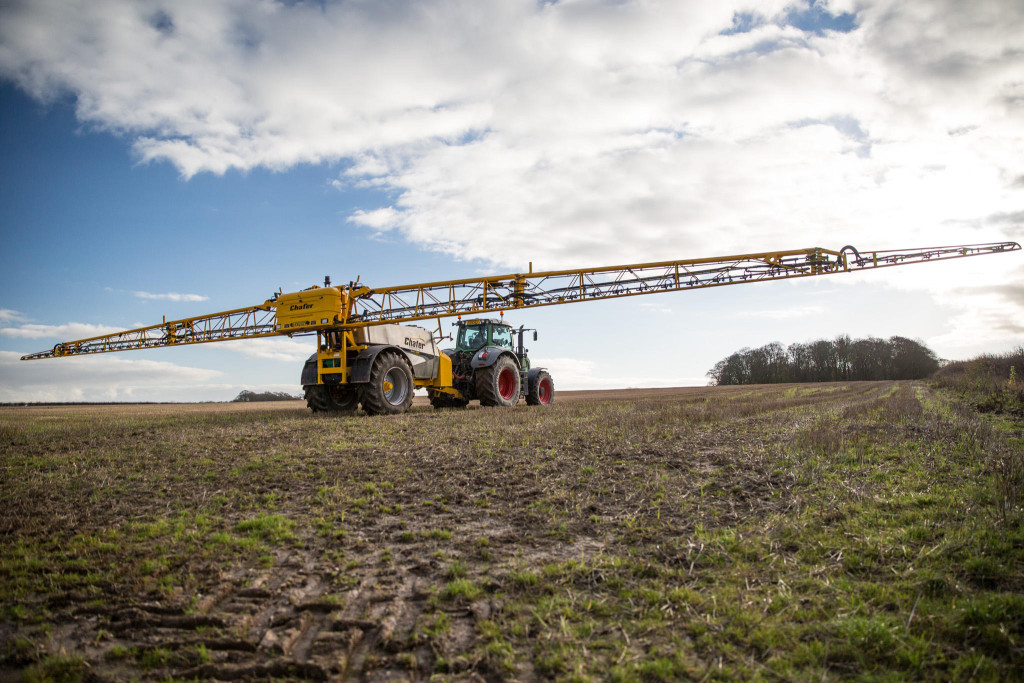Glyphosate remains licensed for use, for now. The scientific evidence does not justify a quick ban. Nonetheless, use of the herbicide can be minimized by applying best practice and technological advances.
Glyphosate, a versatile ingredient used in herbicides, has been employed in German agriculture for over 40 years and has become an indispensable part of farming in the country. After several controversial debates in the EU Parliament, the corresponding committee of the EU Commission has renewed the glyphosate license for five years for the time being.
The smouldering conflict between opponents and supporters of glyphosate escalated in response to a new assessment of the substance in the context of the EU evaluation of the active substance. While Germany’s Federal Institute for Risk Assessment (Bundesinstitut für Risikobewertung, BfR) rated the cancer risk from handling glyphosate and from pesticide residues in food as being very low and communicated its findings to the European Food Safety Authority (EFSA), the World Health Organisation’s International Agency for Research on Cancer (IARC) rated the active substance as probably carcinogenic in humans.
The evaluation took place against the background of a hazard analysis aimed at establishing whether glyphosate was even capable of causing cancer. The analysis disregarded dose-response relationships when glyphosate is applied correctly and at the right dosage. In contrast, the BfR had performed the risk analysis needed to evaluate the active substance, i.e. it assessed the risk of cancer in actual use. It found that when glyphosate is applied correctly, no negative carcinogenic, reproductive or teratogenic effects are to be expected. A repeat evaluation of this finding at the end of a multi-week consultation phase confirmed the result.
Independent scientific policy advice is essential for political decision-making, which is why the corresponding advisory structures are usually established in the political arena. In this sense, the German government had entrusted the BfR with the task of generating independent and transparent findings on questions of food safety and consumer health, based on recognised scientific standards, as well as assessing the safety of chemicals and animal feeds. And that is precisely what the BfR did when it analyzed the risks of using glyphosate. Once it had completed its scientific advisory function for the policy decision, responsibility was transferred from the field of science to the political sphere. At this point political decision-makers had the choice of following the science or not. However, they should clearly communicate to the public that they were making a political decision. Anything else was implausible and risked discrediting independent scientific policy advice.
The truth also involves disclosing the disadvantages of a political decision against glyphosate. Glyphosate has become more widely used not least because of the rapid adoption of strip tilling in conventional agriculture. Strip tilling reduces soil erosion and permits greater biological soil activity. It requires fewer mechanical operations and lowers fuel consumption, benefiting not only farmers and consumers, but also the environment. A sudden ban on herbicides containing glyphosate would place some of these advances at risk. For many cultivations, cost-equivalent and less environmentally harmful alternatives do not exist, according to an impact assessment by the Julius Kühn Institute commissioned by the federal government.
If glyphosate were banned, other chemical alternatives would have to be used, despite their greater negative impact on the environment and lower effectiveness. Absent alternatives, a return to mechanical soil cultivation would be possible, but it would imply having to accept the resulting disadvantages and higher costs. Even so, experts recommend that glyphosate should not be applied indiscriminately, but that users should carefully check whether equivalent alternatives exist. For instance, mechanical tillage can be used to kill weeds on soils which are not at risk of eroding. The use of glyphosate to accelerate ripening (desiccation) can be mitigated by planning for even plant growth during tilling and sowing.
Given rapid technological progress in agriculture, it will become possible to further reduce the use of herbicides such as glyphosate. The introduction of digitalization into agriculture in particular will open up avenues to make more sparing use of chemical herbicides. Computers can determine the optimum weather for using herbicides. Sensors can establish the amount of weed coverage and calculate the optimum quantity of weed killer that should be applied. Finally, navigation systems make it possible to determine the quantum of herbicide needed in various sections of a field while also taking into account the prescribed distances.
Herbicides will no longer be indiscriminately applied to fields, but only where they are really needed and effective. In addition, it will be possible to apply various active substances independently and separately from one another. Even pest control without the use of herbicides is conceivable if sensors can recognise individual weeds and remove them by mechanical or thermal means. Proper application and Agriculture 4.0 will make it possible to balance the need to economically protect crops, on the one hand, while taking into account the needs of protecting health and the environment, on the other. This can be achieved without banning glyphosate.



